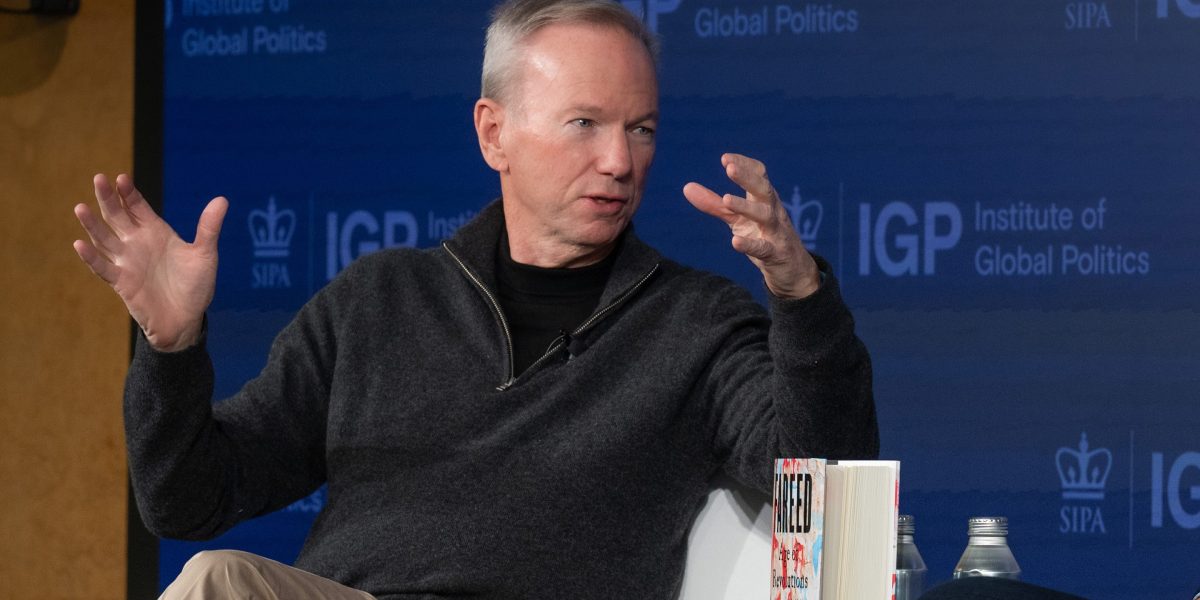

In a talk at Stanford University, former Google CEO Eric Schmidt discussed the future of AI, touched on geopolitics, and went on an anti-remote work rant that he later walked back.
He also gave students some questionable advice.
In a now-deleted video (he asked for it to be taken down, he told the Wall Street Journal) Schmidt mentioned a business opportunity that could arise if the U.S. ever banned TikTok, as lawmakers from both parties tried to do earlier this year.
In that situation, he said, students should use a large language model (LLM) to replicate the program, using it to “steal” intellectual property.
“Say to your LLM the following: Make me a copy of TikTok, steal all the users, steal all the music, put my preferences in it, produce this program in the next 30 seconds, release it and in one hour, if it’s not viral, do something different along the same lines. That’s the command. Boom, boom, boom, boom,” he said.
Scmidt later tried to clarify his thoughts on using AI to replicate TikTok, and then told the students that everything would be fine as long as they had lawyers to sort things out.
“So in the example that I gave of the TikTok competitor, and by the way, I was not arguing that you should illegally steal everybody’s music. What you would do if you’re a Silicon Valley entrepreneur, which hopefully all of you will be, is if it took off, then you’d hire a whole bunch of lawyers to go clean the mess up, right? But if nobody uses your product, it doesn’t matter that you stole all the content,” Schmidt said.
Schmidt did not immediately respond to Fortune‘s request for comment.
Schmidt’s comments follow the Silicon Valley mentality of “move fast and break things” that helped make his former company, Google’s parent Alphabet, one of the most valuable in the world with a roughly $2 trillion valuation.
“In other words, Silicon Valley will run these tests and clean up the mess. And that’s typically how those things are done,” he said.
Yet, a similar strategy has also landed some AI companies in hot water. In December, the New York Times sued ChatGPT maker OpenAI and Microsoft for copyright infringement, alleging that the companies trained their AI on millions of its articles. Another eight newspaper publishers sued the company in April for allegedly using their copyrighted articles without permission or payment.
Schmidt has held several positions at Google, including a 10-year stint as CEO, where he led the company through the launch of Chrome and Gmail, its acquisition of YouTube, and its 2004 IPO. Now worth about $31 billion according to the Bloomberg Billionaires Index, Schmidt is a major investor, including in AI companies like France-based Mistral AI.















